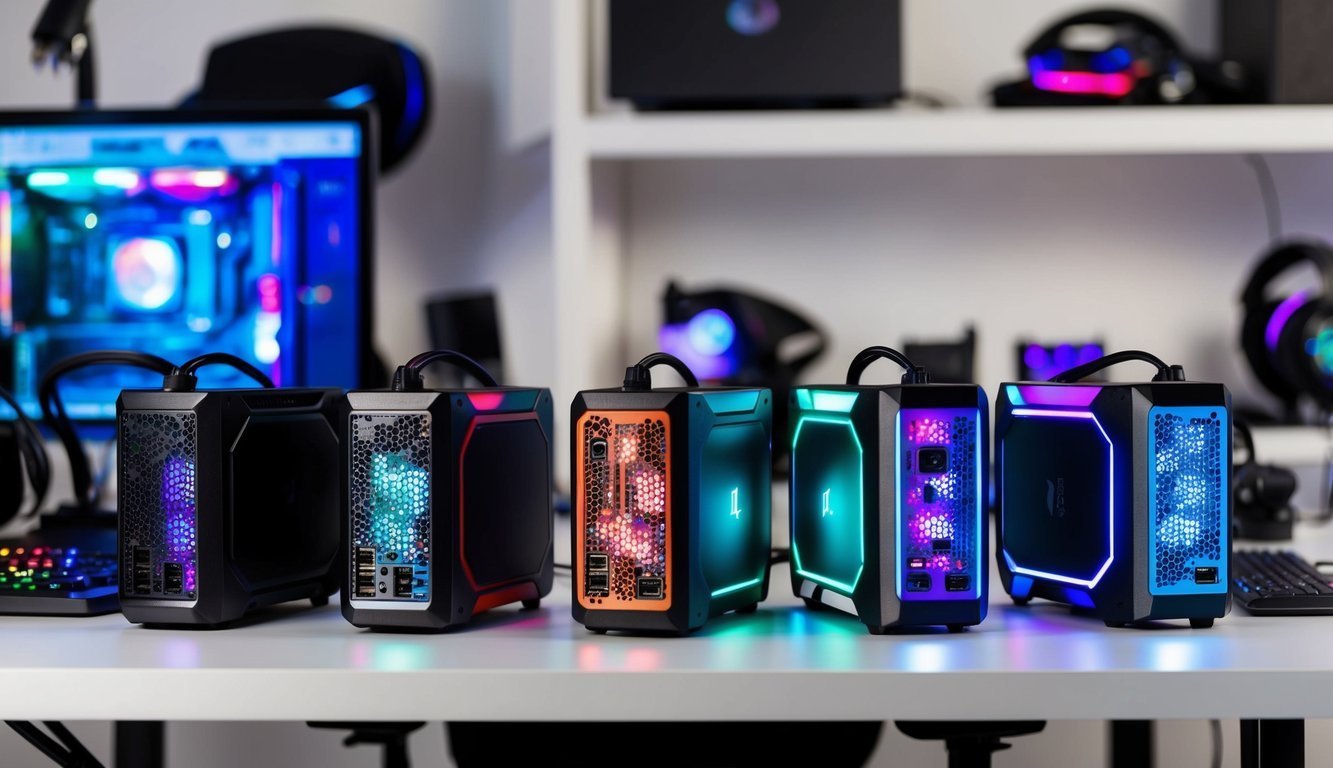Exploring the Mini PC Landscape
When it comes to exploring the latest gaming gear, most discussions zero in on flashy hardware.
Yet, today I’d like to pivot to mini PCs.
These tiny marvels aren’t just scaled-down versions of desktops; they represent a distinct category of computing that has been around far longer than you might think.
Lately, I’ve been pondering whether mini PCs are finally ready to stake their claim in the gaming world.
With ever-increasing prices for desktop components and rising energy costs, a more compact alternative could be very attractive.
The success of portable devices like the Steam Deck and Asus ROG Ally also suggests that many gamers prioritize user experience over sheer performance.
Interestingly, there’s talk of Valve potentially reviving its Steam Machine mini PC project after its initial lukewarm response.
So, is now the time to consider investing in mini PCs?
Performance and Usability
To dig deeper, I set up two modern mini PCs on my desk for a side-by-side comparison.
The first is the Zotac ZBOX Magnus EN374070C, which is powered by RTX 4070 hardware and features components typically found in laptops.
This model serves as a window into the world of high-performance mini PCs.
The second contender is the Acer Revo Box, a more budget-friendly option equipped with Intel’s Iris Xe integrated graphics.
Both machines are quite user-friendly.
They run on the familiar Windows operating system, come with multiple monitor outputs (including dual DisplayPorts on the ZBOX), and generally boast enough USB ports for most setups.
However, if you rely on rear audio jacks for speakers, you might encounter some limitations, although using headsets is seamless.
Noise is another aspect where these mini PCs impress.
While the ZBOX emits a bit of fan noise under heavy loads, both machines are quieter during regular operations compared to traditional desktops.
Their compact designs are a godsend for anyone looking to declutter.
You can easily tuck them under a desk or hide them behind a monitor.
From an aesthetic standpoint, both units are appealing.
They resemble small boxes, not unlike those used for pizza delivery desserts.
Although a handheld docked PC may seem more compact, it often sacrifices connectivity and stability, which these mini PCs manage to retain.
Limitations and Considerations
However, not everything about mini PCs is perfect.
A significant trade-off is their limited modularity compared to conventional mini ITX desktops.
For instance, while you can open up both the ZBOX and Revo Box to upgrade the RAM or storage, the CPU, GPU, motherboard, and casing are typically packaged together, making upgrades trickier.
The performance of these mini PCs also varies.
Due to their compact nature, achieving the same performance as standard desktop systems can be a challenge.
For example, the RTX 4070 in the ZBOX doesn’t quite deliver the same power as its larger counterparts in traditional rigs.
That said, the ZBOX can hold its own against demanding titles, performing well at 1440p with respectable frame rates.
In contrast, mini PCs that rely on integrated graphics can be more of a mixed bag.
The Acer Revo Box managed to handle only two out of six games smoothly, with titles like Cyberpunk 2077 experiencing noticeable visual issues.
For the games that worked, users had to make several adjustments to the settings.
F1 22, for example, required dropping from High to Ultra Low quality just to boost the frame rate from a lackluster 24fps to a more playable 42fps.
Apex Legends fared slightly better at 39fps.
When the Iris Xe was first introduced, it was touted for its enhanced gaming capabilities, but in demanding 3D environments, it falls short.
If your gaming preference leans toward casual indie games or the classics, however, the Revo Box holds its ground admirably.
While it may struggle with the latest ray-traced shooters, it performs beautifully with titles like Portal 2, Vampire Survivors, and Deus Ex—delivering satisfactory gameplay on a compact, quiet device.
So, should you take the plunge and invest in a mini PC? While I wouldn’t advise trading your desktop for one—especially if maximizing frame rates is your priority—I do recognize that there are potential users out there for whom mini PCs could be a great match.
The range offered by brands like Zotac and Acer illustrates that this category caters to a variety of needs.
Their elegant form factor and efficient designs make them a respectable option in the ever-expanding world of PC gaming.
Source: Rockpapershotgun


